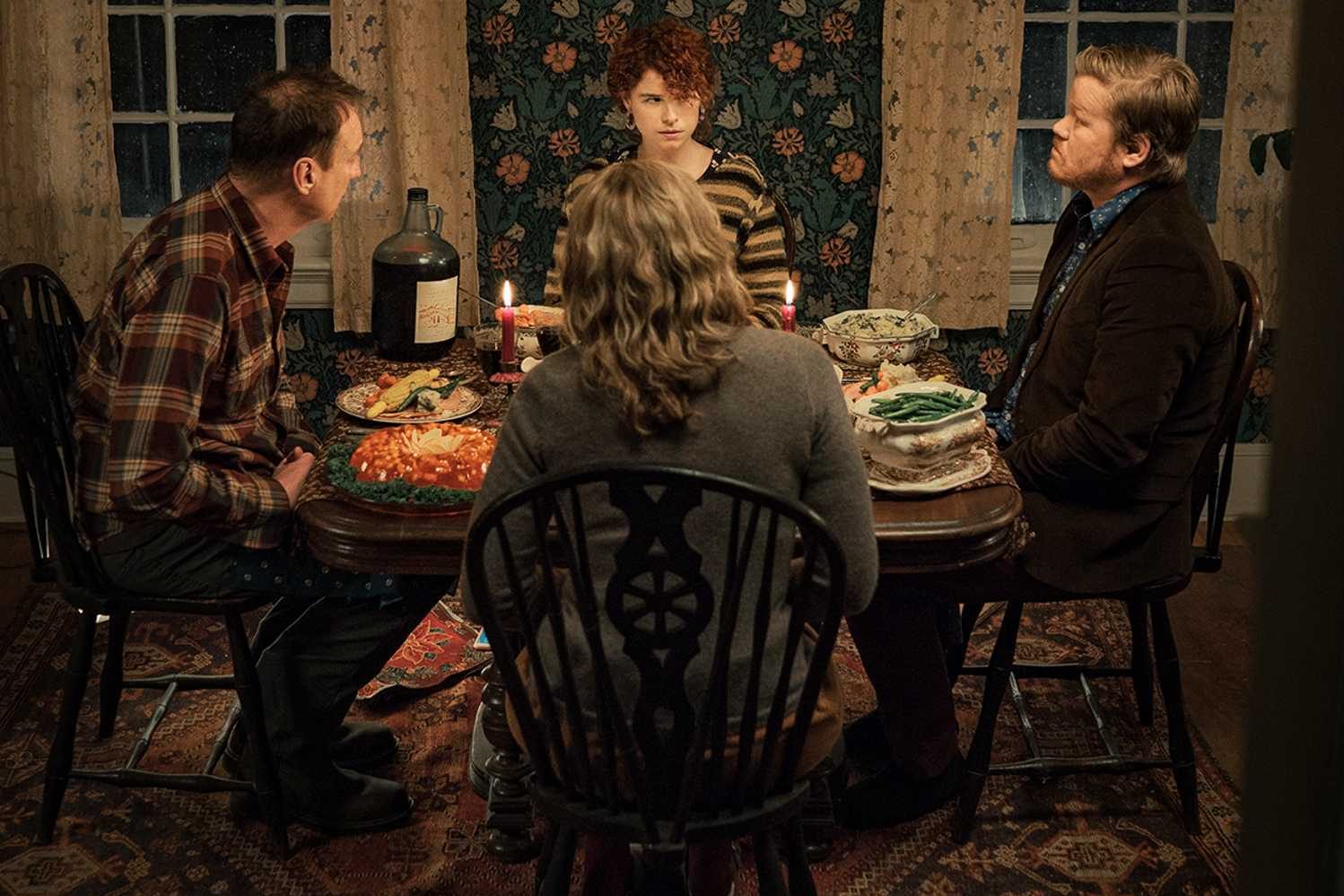When first viewing the trailer of “I’m Thinking of Ending Things,” viewers may forget they aren’t watching a new A24 film, but instead a Netflix project. Charlie Kaufman’s film almost seems misplaced on the streaming giant. The truth of the matter is Netflix is no Kanopy, especially considering some of its recent cinematic follies and questionable greenlit content.
Even so, sometimes Netflix surprises its viewers with an original that could be called great. When I find these movies, I feel like a prospector who has been moving my pan in a river promised to have gold, thanking the heavens when my eyes finally catch sight of a nugget. So far, “I’m Thinking of Ending Things” has turned out to be the shiniest piece of gold I’ve found yet.
For Those Who Haven’t Seen It Yet
Although this may seem obvious from the trailer, “I’m Thinking of Ending Things” is not a light watch. If the viewer is looking for background noise while scrolling through their phone or something they can pretend to watch while on a date, Netflix has tons of great movies to serve those purposes.
If the viewer is interested in the film because of a pure love of cinema, the best piece of advice is to go into the movie with an open mind. Paying attention to the fine details will ultimately reward the viewer in the end. It’s okay to be overwhelmed by everything happening onscreen. Keep in mind, the film is so full of references, the viewer probably won’t catch them all.
Ultimately though, if a deep dive into an existential pit does not sound like an appealing movie experience at this point in time, it is best to stay clear of “I’m Thinking of Ending Things.”
For Those Still Trying to Find Meaning
The best way to start understanding “I’m Thinking of Ending Things” is to know that it is an adaptation of a book of the same name by Iain Reid. Among the central characters in the book, there is Jake and the high school janitor, and the connection between them is clearly drawn.
Essentially, the janitor is Jake. Well, a version of himself he wishes he was or could’ve been when he was younger. Many clues are given throughout the movie. For example, at one point during a car ride Jake turns the radio onto a song from “Oklahoma!,” and despite his insistence that he’s not a fan of musical theater, he rattles off 18 musicals he knows of to the woman next to him. He explains that he knows the songs to “Oklahoma!” best because “they do it every few years.”
The phrases Jake uses while speaking of the high school students make it clear he is not one of their peers, but rather a fixed, mostly unseen staple in the background. The car ride is directly followed by a scene of the janitor watching the students rehearse the very song played on the radio. To reiterate, Jake is the janitor.
The film encourages the viewer to reach for this conclusion themselves, as Kaufman explained in a phone interview with IndieWire: “I’m not really big on explaining what things are. I let people have their experiences, so I don’t really have expectations about what people are going to think. I really do support anybody’s interpretation.”
If viewers choose to jump onto the book’s revelation, Jake is only the janitor’s fantasy. Then, logically, the woman is also the janitor’s fantasy; the janitor manifests her from a girl he wishes he would have flirted with in his youth. The woman’s constantly shifting appearance is him not quite remembering what she looked like, or even just him testing out different versions of her.
Jake’s childhood bedroom is also a testament to this idea; many fans eagerly pointed out books and movies that are referenced or recited by the woman. The janitor is cobbling together a fantasy life for himself from the media he is familiar with. As Kaufman explained in his interview, “This movie is dealing with somebody’s experience of absorbing things that they see and how they become part of his psyche.”
Anxiety is a subtle, but potent, flavor to the film. It’s the sort of disquiet drawn from trying to remember something that can’t quite be conjured up. The mind may eventually think it has found the memory it has been searching for, but the thought just doesn’t seem right. A person may accept the not-quite-right memory only in order to ease the anxiety.
Something I think the film does particularly well is evoking certain elements that feel eerily familiar to the viewer, particularly for Americans who grew up and live in or near rural towns scattered across the United States. The endless, snowy fields surrounding the farmhouse where Jake’s parents live could come directly from almost anyone’s childhood. For me, the high school looked just like the one I spent four (long) years in — maybe it was just the constant feeling of foreboding that was familiar.
The familiarity adds to the uneasy tone of the entire film. False comforts are found in the reassurances of the familiar settings, which are just different enough to create a slight feeling of dread to wash over the viewer as the film marches on. Match this anxiety with the desperation caused by an isolated rural town in winter and the film has undoubtedly earned its “psychological thriller” tagline.
When considering Kaufman’s assertations that the film is a cumulation of Jake’s psyche, it’s understood that Jake is a stand-in for any lonely, regret-filled individual who never quite made it out of their hometown. The whole film lays a thick consciousness of a person’s own mortality.
It begs the question of what is a person but everything they’ve seen and consumed in their life? Is free will an illusion since no person controls what environment they are born into or how the media they consumed growing up affects their life? Is a human life anything more than just a series of half-remembered memories? The movie does little to answer its own questions and leaves the viewer to their own devices to figure out the point of it all.
Obviously, by the end of the movie, its title has more meaning beyond a woman breaking up with her boyfriend. The title alludes to Jake’s considerations of ending his own life. The film’s last image of the janitor’s snow-covered car in the school’s parking lot more than guarantees his death.
It is fortunate the movie has made its debut on Netflix, as the whole film practically begs the viewer for a re-watch from its first cryptic line. But, if the viewer isn’t up for the extra existential dread, there are plenty of YouTube videos ready to dissect the movie.

















